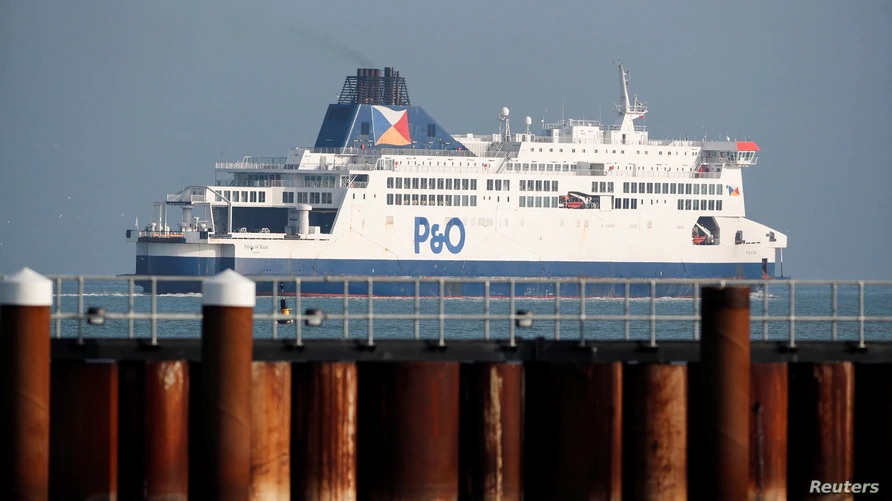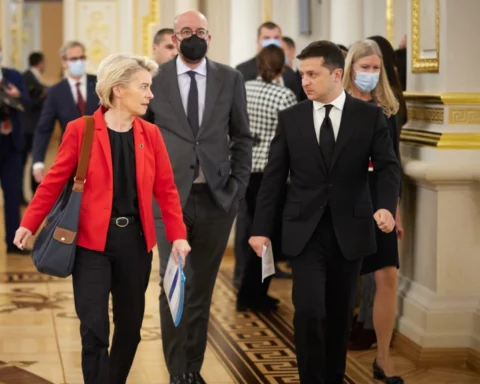How many is unclear — no one is yet keeping tally.
A year ago, a British business lobby group, the Institute of Directors, found in a survey that a third of small-to-mid-size enterprises [SMEs] were planning or considering relocating or setting up additional facilities on the other side of the Brexit curtain.
Dutch investment authorities say they have lured 140 Brexit-wary companies since Britain’s 2016 referendum to quit the EU, and more than another 100 are exploring moves. Other EU countries also are reporting record numbers of British firms moving or considering full or partial relocations. Slovakia, within a year of the 2016 Brexit referendum, saw 400 British firms register new businesses in the country, including Jaguar Land Rover, which currently is building a new plant near Nitra in western Slovakia.
Among Slovak-bound British businesses is the Goodfish Group, a company based in the English Midlands, and which, until the Brexit referendum, largely made plastic injection moldings for British-based auto-manufacturers. It must diversify, mainly through acquisitions, thanks to a serious fall-off in orders since the referendum, and to turn its focus to supplying moldings for other sectors, including retail. The company exports a third of its products to EU countries and since the referendum, needs to close one of four factories.
Greg McDonald, who founded Goodfish Group in 2010 after a 25-year career in investment management and corporate development, is rueful about Brexit and disparaging about Britain’s politicians, who he says just don’t understand the complexity and importance of supply chains and the nitty gritty of everyday business outside banking or PR. “They have not got a clue — they are so far removed,” he says.
McDonald initially registered a company in Slovakia to be ready to transfer some production there in the event of Britain failing to conclude a tariff-free trade deal with the EU. The agreement, struck Christmas Eve and which was approved midweek by the House of Commons, doesn’t satisfy him, and he’s completed the legal requirements to start trading in Slovakia. He now must sign a lease on a factory, which will complement the three plants he currently runs in Britain.
Speaking Wednesday in the Commons, British Prime Minister Boris Johnson lauded the deal, which gives tariff and quota-free access to Europe’s Single Market when it comes to goods and parts, saying it will mark the start of “what will be a wonderful relationship between Britain and our friends and partners in the EU.”
He added: “We were told we could not have our cake and eat it.” Johnson Thursday described the new year’s severing of ties with the EU as “an amazing moment” for Britain, saying Brexit had put “freedom in our hands” and that the British would be able to do things “differently and better” outside the EU.
Hours after speaking, Johnson’s father Stanley, a former European Parliament lawmaker, revealed he is applying for French citizenship. Stanley Johnson’s mother was born in France.
McDonald fears that’s not the way it will turn out. “We are going to have tariff-free access but there are all sorts of other ways business will be stifled,” he says. He cites the burden of additional customs paperwork and inspections and likely slower transfers at ports that will add to costs and reduce price competitiveness.
Because of this, foreign-based auto-manufacturers will reduce their production in Britain, he forecasts.“Honda, Toyota, BMW will make in Britain what they need to satisfy the domestic UK market but not, as before, for the whole of the EU market,” he adds.
Much of industry across Europe is dependent on parts moving easily, seamlessly from factory to factory, across open borders, with few delays and inspections and little paperwork, if any. That has meant firms can rely on just-in-time delivery of parts, products and goods they need. For British businesses in the automotive industry, as well as in other manufacturing sectors, trading will now be much more complicated.
McDonald hopes by starting up production also in Slovakia and “being on the right side of the Brexit curtain,” as he puts it, Goodfish, which currently employs 110 full-time workers and 25 part-time or agency employees and has a turnover of $18 million, will have a better shot at competing in a much bigger market.
Trying to navigate Brexit has been a strain for him. He apologizes for his raspy voice, explaining he’s developed stress-related muscle tension dysphonia. “Surprise, surprise,” he adds.
Supply chain challenges, burdensome paperwork and the impact of shipping delays, plus increased costs, is worrying small and mid-sized enterprises across Britain that trade with the EU.
“Manufacturers and farmers will face irksome checks at borders for things like customs, VAT (value added tax), safety and security, plant and animal health, and much more. Services companies will lose access to the single market unless they set up subsidiaries within it,” notes Charles Grant of the Center for European Reform [CER], a London-based research organization.
In an analysis for CER this week, Grant says some British manufactures will struggle to meet the deal’s requirements when it comes to the origin of components and products in their goods. A high percentage of the components used must have been made in either Britain or EU countries and nowhere else to qualify for zero EU tariffs or to avoid quotas.
“Boris Johnson’s post-deal victory speech, in which he falsely declared the deal would mean ‘no non-tariff barriers,’ suggests a government still struggling to fully understand the consequences” of the trade deal,” Grant said.
Brexit is not over yet, Grant adds, predicting that if the deal “proves a major inconvenience for significant groups of people, businesses and institutions, a debate will start on how to improve it.” Under the deal, either party, Britain or the EU may request a review of the provisions on trade, four years after it enters into force. “That will make the EU-UK relationship a theme of the general election that is likely in three or four years,” he adds.
When it comes to the automotive industry, there’s relief a trade deal has been agreed upon, says Paul Lund of Fitch Ratings, an American credit rating agency. He describes it, though, as “one step better than the worst case.”
The worry, he explains, was how “tariffs would be set on parts coming to Britain, being put in cars and then the cars being exported [to the EU] and what the ultimate rate would be on exported cars” to the EU. That threat has now disappeared. The concern is with supply chain interruptions and costs because of the more complicated border-crossing arrangements. Ports could become bottlenecked, he says. Costs will affect price competitiveness.
“I think this will hit the SMEs (small and medium-sized enterprises). I don’t think this is a big problem for the big industrial firms. The value of their production is too big. They are much more geared to handle the paperwork and sorting out the administrative burden and making it more automatic,” he notes.
Lund also says British firms will need to have more capital on hand so they can stock and warehouse more parts and products to ensure there is no interruption in their ability to supply customers. Another added cost.






